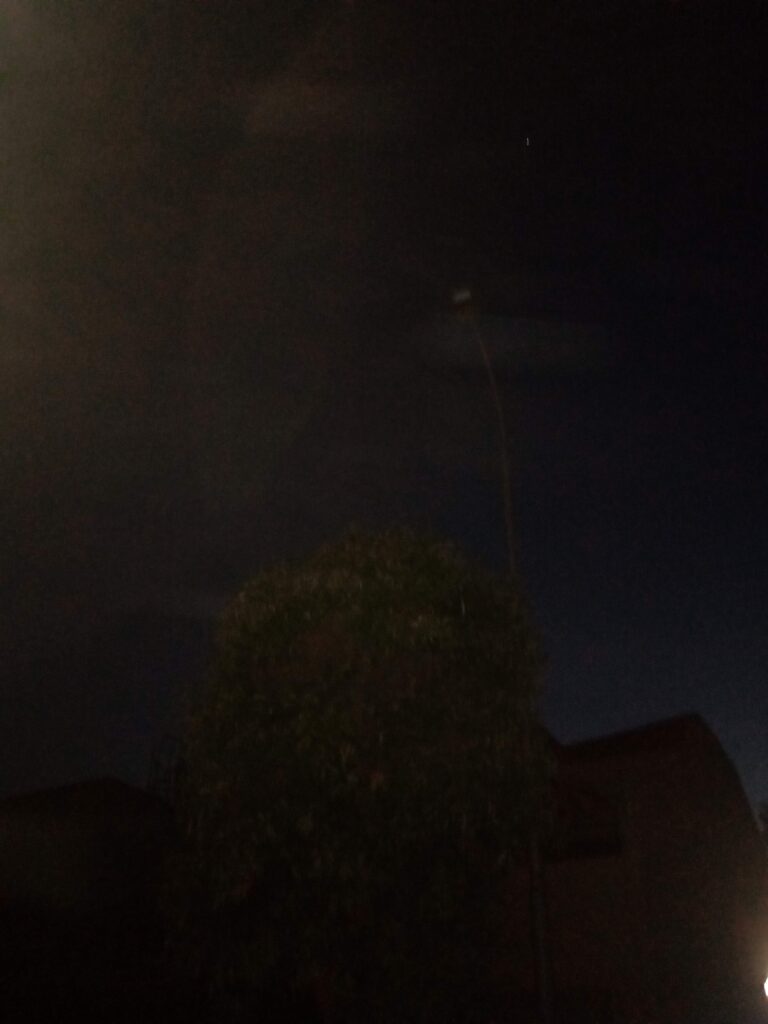Coping With Anxiety During Load-Shedding in Pakistan in 2025
Load-shedding in Pakistan is a persistent challenge that plunges millions into darkness, disrupting daily routines and stirring feelings of anxiety and frustration. These planned power outages, a result of the country’s ongoing energy crisis, can last for hours, affecting everything from work and education to personal safety and sleep.
For many, the unpredictability of when the lights will go out—and when they’ll return—creates a constant undercurrent of stress. But it doesn’t have to overwhelm you. This article explores the psychological toll of load-shedding and offers practical, culturally relevant tips to help you cope with anxiety during these times. Whether you’re a student, a professional, or a caregiver, these strategies can help you stay calm and in control, even in the dark.

1. Key Players Who Have Contributed to This Precarious Loadshedding Situation in Pakistan
Government and Policy Makers
-
Lack of effective policy and planning: Successive governments have failed to develop and implement a comprehensive energy policy, leading to a mismatch between power generation and distribution capacity.
-
Inadequate investment in distribution infrastructure: The government has not invested sufficiently in upgrading and expanding the distribution network, leading to inefficiencies and losses.
Distribution Companies (DISCOs)
-
Inefficient operations and management: DISCOs have been criticized for their poor management, inadequate maintenance, and lack of investment in modernizing their systems.
-
High transmission and distribution losses: DISCOs have failed to reduce transmission and distribution losses, which are among the highest in the world.
Regulatory Bodies
-
NEPRA (National Electric Power Regulatory Authority): While NEPRA has taken steps to improve the sector, it has been criticized for not being effective enough in regulating distribution companies and ensuring compliance with standards.
Other Stakeholders
-
Power generation companies: While not directly responsible for distribution, some power generation companies have been criticized for not producing electricity at optimal levels, exacerbating the supply-demand gap.
-
Consumers: Unfortunately, some consumers also contribute to the problem by engaging in power theft, which puts additional strain on the distribution system.
-
Develop and implement a comprehensive energy policy.
-
Invest in upgrading and expanding the distribution infrastructure.
-
Improve the efficiency and management of DISCOs.
-
Enhance regulatory oversight and enforcement.
-
Promote energy conservation and efficiency measures.
2. Understanding Load-Shedding and Its Impact on Mental Health
Load-shedding refers to the intentional shutdown of electricity in specific areas to balance the demand on Pakistan’s strained power grid. It’s a familiar reality, especially during peak seasons like summer and winter, when outages can stretch up to 12 hours in some regions. While the physical disruptions—like spoiled food or halted work—are obvious, the mental health effects are just as significant:
– Uncertainty and Anxiety: Not knowing when the power will cut off or return can keep you on edge, especially if you rely on electricity for essential tasks.
– Frustration: The inability to charge devices, cook, or stay cool in the heat can build feelings of irritation and helplessness.
– Safety Worries: Nighttime outages can amplify fears about security, particularly in urban areas or neighbourhoods with higher crime rates.
– Sleep Disruption: Frequent power cuts at night can interrupt rest, leaving you tired and less equipped to handle stress.
Studies suggest that power outages can increase anxiety and even contribute to depression over time. In Pakistan, where extended families often live together, the shared experience can either ease the burden through support or heighten tensions when resources are stretched thin. Understanding these effects is the first step to managing them.
3. Practical Tips for Managing Daily Life During Load-Shedding

Preparation can turn a stressful power outage into a manageable inconvenience. Here are some practical steps to reduce disruption and ease anxiety:
– Stay Informed: Check your local load-shedding schedule online or through utility announcements. Knowing what to expect helps you plan and reduces uncertainty, one of the biggest triggers of stress during power cuts.
– Backup Lighting: Keep flashlights, rechargeable LED lamps, or candles ready. A well-lit space can make outages feel less daunting and keep safety concerns at bay.
– Power Solutions: Charge power banks for phones and, if your budget allows, invest in a UPS (Uninterruptible Power Supply) for fans, lights, or medical devices. These small backups can restore a sense of normalcy.
Generator: The choice of generator depends entirely on your needs, the lifestyle you enjoy, the size of your residence and the appliances that you want to keep running in the absence of power. Regardless of which generator you purchase, remember that there are a number of security precautions that you must take in order to ensure its safe and secure usage inside your home.
– Meal Prep: Cook meals in advance or rely on gas stoves for quick fixes. Stock up on snacks that don’t need refrigeration to avoid the panic of spoiled food.
– Water Reserves: Store enough water for drinking, cooking, and hygiene, as water pumps often depend on electricity.
These steps don’t just solve logistical problems—they give you a sense of agency, which is key to keeping anxiety in check during load-shedding in Pakistan.
4. Strategies to Cope with Anxiety During Power Outages
Beyond preparing your home, calming your mind is essential. Here are some proven techniques to manage stress when the lights go out:
Indoor Games
-
Treasure Hunt: Hide some small treats or toys around the house and make a treasure map to help them find them.
-
Story Time: Gather the kids around for a fun storytelling session, using flashlights or candles for ambience.
-
Indoor Obstacle Course: Create a mini obstacle course using household items, like couch cushions, chairs, and blankets.
-
Board Games: Break out old favourites or introduce new ones, like chess, checkers, or card games.
Creative Pursuits
-
Arts and Crafts: Set up a craft station with paper, glue, scissors, and other supplies and let their creativity shine.
-
Drawing or Painting: Provide flashlights or candles for lighting, and let them express themselves through art.
-
Music or Dance: Have a family dance party or create homemade instruments, like shakers or drums.
 Outdoor Activities (when safe)
Outdoor Activities (when safe)
-
Stargazing: If it’s a clear night, take the kids outside for some stargazing fun.
-
Nighttime Nature Walk: Take a short walk around the neighbourhood or a nearby park, using flashlights to spot nocturnal creatures.
-
Glow-in-the-Dark Games: Play games like glow-in-the-dark Frisbee, soccer, or badminton.
Educational Activities
-
Science Experiments: Plan some fun, low-light science experiments, like making slime or creating a homemade lava lamp.
-
Language Learning: Practice a new language together, using flashcards or playing language-based games.
-
History or Culture Lessons: Share stories about Pakistani history, culture, or traditions, using candles or flashlights for ambience.
– Deep Breathing: Feeling overwhelmed? Take a moment to breathe deeply—inhale for four seconds, hold for

Four, exhale for six. This resets your nervous system and brings instant calm.
– Mindfulness: Focus on the here and now instead of worrying about the outage’s duration. A few minutes of meditation can shift your perspective.
– Stay Active: Stretch, walk around the house, or do light exercise. Physical movement releases endorphins, lifting your mood naturally.
– Positive Self-Talk: Remind yourself, “This is temporary” or “I’ve handled this before.” These affirmations can build resilience.
– Unplugged Activities: Turn outages into opportunities—read a book, play cards with family, or tell stories. In Pakistan, where storytelling is a cherished tradition, this can become a bonding ritual.
These strategies don’t require fancy tools, making them accessible to anyone facing electricity shortages. They transform downtime into a chance to recharge emotionally.
5. Cultural Context and Community Support
Pakistan’s cultural landscape offers unique strengths for coping with load-shedding. Extended families living under one roof often share the load, both literal and emotional. During outages, you might find grandparents sharing tales by candlelight or neighbours pooling resources like generators. This communal spirit can lighten the mental burden of power cuts.
6. A Hilarious Personal Experience
My grandchildren visited Pakistan from the UK during the summer season. Once the load shedding commenced during the night, they were curious about what happened, and why the lights were switched off, since it was a maiden occurrence in their life, all the lights were off and couldn’t be switched on.
Every logic was put across, but they simply failed to comprehend how and why it was done by the Government. How does life go on without light at night? How do people cope with sweltering heat? They could not sleep, anxiously waiting for how long it would remain dark. So joyous and happy they felt, when light came back. When they went back, on every call from the UK they would always ask, Is there load shedding going on at this time?
Take Ayesha, a mother of three from Lahore: “When the power goes out, we gather in the courtyard. The kids play, and I chat with my mother-in-law. It’s not ideal, but it keeps us from feeling alone.” Her story reflects how the community can turn a challenge into a shared experience.
That said, crowded households can also amplify stress if everyone’s needs clash, like when one person wants quiet and another craves company. Striking a balance is key. Traditional solutions, like oil lamps or hand fans, also show how Pakistanis have adapted to power shortages for generations, blending resilience with resourcefulness.
7. Seeking Support When Anxiety Persists
If load-shedding stress starts to feel unmanageable, don’t hesitate to reach out:
– Lean on Loved Ones: Talk to family or friends about how you’re feeling. In Pakistan’s tight-knit communities, a listening ear is often close by.
– Professional Help: Consult a therapist via phone or online platforms. Even during outages, a charged device can connect you to support.
– Online Communities: Join local forums or social media groups where people share tips and vent about power outages. Knowing others are in the same boat can be reassuring.
Mental health matters, and seeking help is a practical step, not a weakness.
Finding Light in the Darkness
Load-shedding in Pakistan tests more than just your patience—it challenges your mental resilience. But with the right tools, from backup lights to breathing exercises, you can navigate these power outages without losing your peace of mind. By preparing your home, calming your thoughts, and tapping into your community, you’ll not only cope with anxiety during load-shedding but also emerge stronger. The lights may go out, but your ability to adapt doesn’t have to.
Baloch Discontent 2025: A Legacy of Corrupt Leadership and Betrayed Trust

